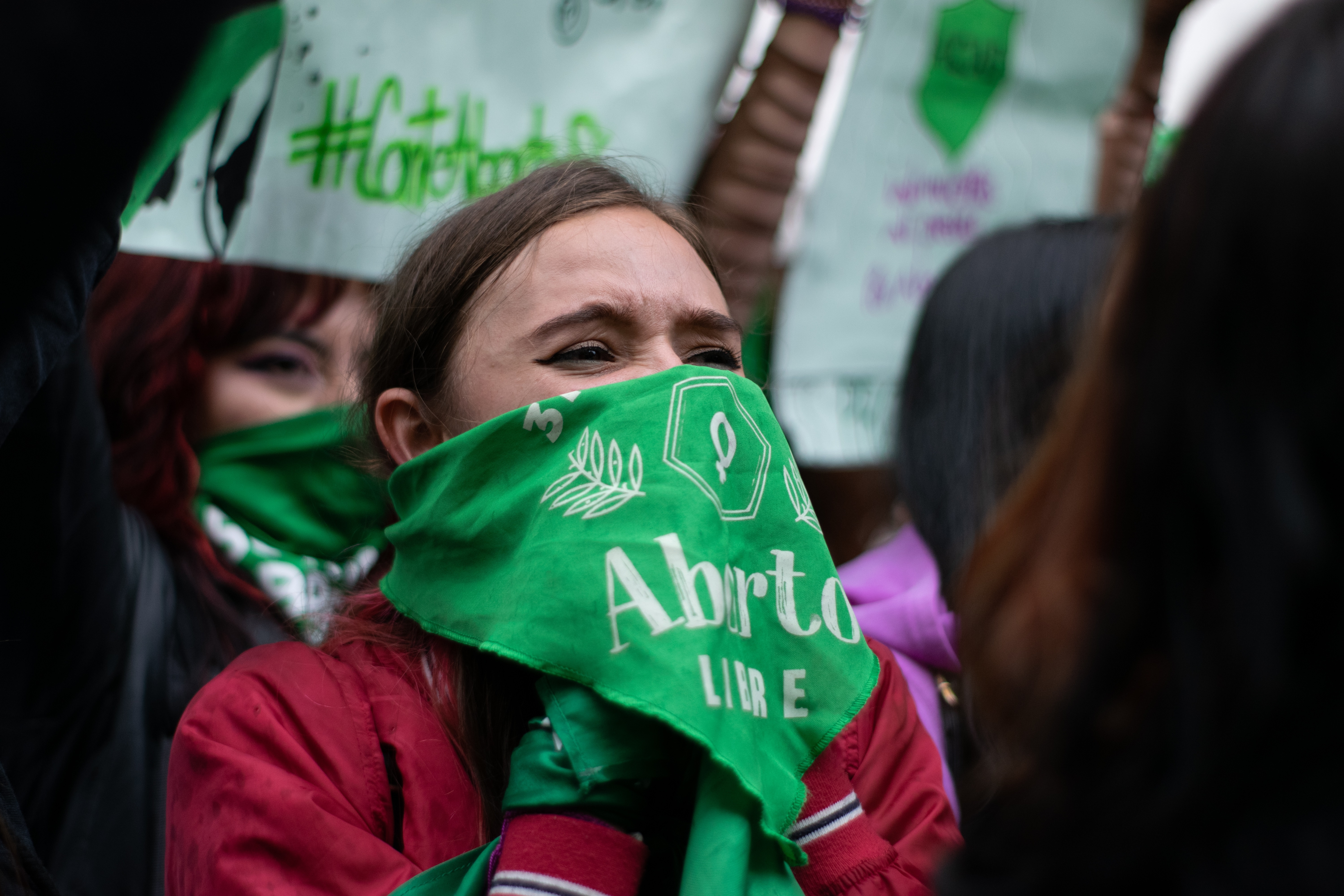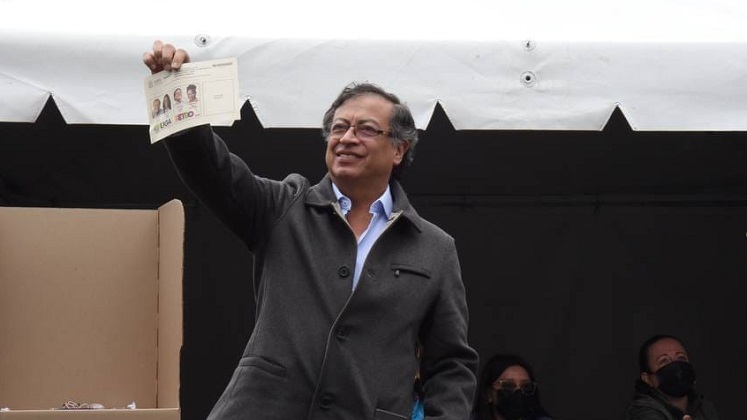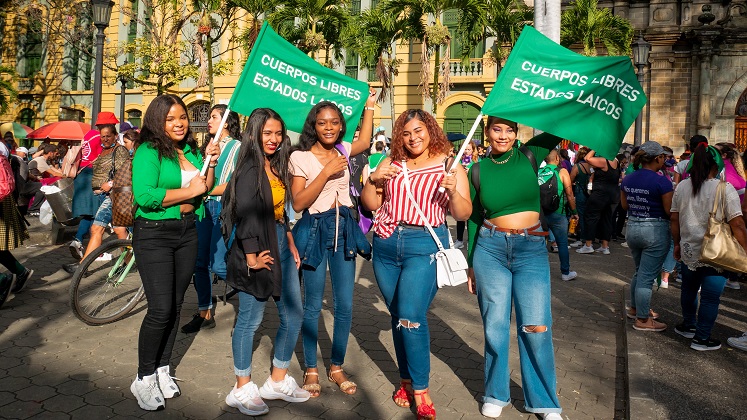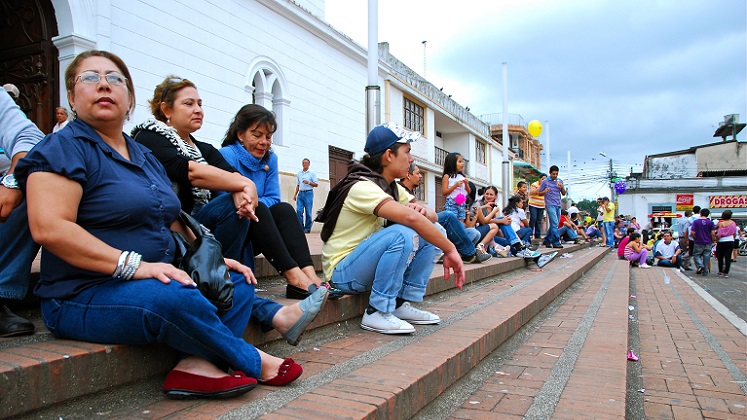Observers see the scathing criticism of the ruling political establishment and the strong anti-politics rhetoric of both Gustavo Petro and Rodolfo Hernández as the clash between two populists. No matter who wins the presidency in the run-off, concerns have arisen about the existential crisis that Colombian democracy is facing, describes Blendi Kajsiu (Universidad de Antioquia).
Lee este artículo en español
The first round of the 2022 presidential elections in Colombia produced two anti-establishment candidates, Gustavo Petro with 40% of the vote and Rodolfo Hernandez with 28%, who will dispute the presidency in the second round on June 19. Both offered scathing criticism of the ruling political establishment and identified political corruption as a major problem that holds the country back. It is due to their strong anti-politics rhetoric that the second round of presidential elections has been described by most observers as a clash between two populists. This, in turn, has given rise to concerns that Colombian democracy faces an existential crisis, no matter who wins the presidency.
The overwhelming focus of the mainstream media on the anti-establishment dimension of these two candidates has exaggerated their populist magnitude and the threat they pose to Colombian democracy while obscuring critical ideological differences between them. Populism is a label that can hardly describe Rodolfo Hernández unless it is reduced to demagogy, vulgarity, or simple solutions to complex problems. His anti-politics does not articulate the people as a political subject that should govern. He offers an efficient government for the people by him, a multimillionaire businessman, but not a government by the people. On the other hand, Gustavo Petro claims that his government would be the first in Colombia that would be by the people, not only for the people. In his view, democracy means government not by the heirs of the slave-owners but by the heirs of the slaves. This is a clear reference to his vice-presidential candidate Francia Márquez, the first Afro-Colombian woman to run for that position in Colombian history.
Yet the populist dimension shapes Petro’s program far less than his social democratic ideology. In the same way, Hernández’s political plan is much more defined by his neoliberalism than his anti-politics. However, it is easy to be distracted by the latter, especially when combined with his theatrics and controversies. Most of his electoral campaign took place through Tik Tok videos, where he would invite his followers to look into his eyes and trust him. “I will not lie, and I will not fail you!” he claims. Hernández’s flaws during this campaign included the affirmation that he admired “the great German thinker, Adolf Hitler”, which was as baffling as his excuse that he confused Hitler with Albert Einstein. And although his entire campaign was based on getting rid of all the corrupt politicians, he has been indicted by the Public Prosecutor´s Office on charges of corruption during his time as mayor of Bucaramanga.
Two approaches to one unequal country
There is, however, a clear neoliberal philosophy behind Hernández’s extravaganza. Policies that aim to reduce corruption by downsizing the state while running it as efficiently as an enterprise are clear staples of neoliberal thinking, which identifies the state as the problem and the market as the solution. So is the idea that inequality is not a product of the economic system but corrupt politicians. This is indeed the essence of the former mayor’s proposal with his slogan, “No stealing! No lying! No betraying!”.
In his political program, solutions to the problem of inequality are conspicuously absent, something quite astounding in a country like Colombia, with some of the highest levels of inequality worldwide. Beyond his promise to end the stealing by politicians (la robadera, in Spanish), Hernández presents no specific plans to tackle inequality. His proposal on agriculture does not mention the extreme levels of land concentration in the Colombian countryside nor offers to fix it. Hence, one of the few specific policies he offers on agriculture, subsidising local production to substitute imports, could easily produce major state subsidies for big landowners, deepening inequality even further.
This is a key difference with Gustavo Petro, which is often lost when emphasising their shared anti-politics and populism. Unlike Hernandez, Petro offers several policies that seek to reduce high levels of inequality through tributary, land and pension reforms. In Petro’s discourse, inequality is not a consequence but the very cause of corruption, if not corruption itself. In his view, the fact that the wealthy do not pay their share of tax is a clear example of what he calls “a regime of corruption”. Therefore he proposes tributary, pension and agricultural reforms that aim to reduce levels of inequality while also driving Colombian economics away from extractivism while replacing it with clean energy policies.
A dysfunctional yet resilient democracy
The bad news is that both candidates promise much more than they do or can offer. Despite his anti-politics rhetoric, Hernández’s program is completely lacking in specific economic, political or social reforms that would change the status quo. It is no surprise that the traditional political establishment he attacks, including the uribismo, is now openly backing him. On the other hand, Petro promises much more change than he can deliver, given that he faces powerful entrenched interests and does not enjoy a clear majority in Congress. If elected, it is unclear how he will carry out his agricultural, tributary and pension reforms, not to mention the transformation of the Colombian economy.
The good news is that, despite widespread fears, neither Hernández nor Petro will deal a mortal blow to Colombian democracy. Strangely enough, democracy in Colombia is as resilient as it is dysfunctional. It survived the impressive surge of uribismo under Alvaro Uribe Vélez (2002-2010), a neoconservative president who enjoyed any president’s highest levels of popularity in modern Colombian history. Uribe won the presidency twice in the first round, commanded majorities in both houses of the Colombian Congress, and had the backing of the media along with the main economic and landed interests.
It is, therefore, far more likely that Colombian democracy will survive either Petro or Hernández. The very fact that two anti-establishment candidates can compete for the presidency, opening up the public discussion to new ideas and proposals long ignored by the traditional political establishment, attests to the strength of Colombian democracy today.
Notes:
• The views expressed here are of the author rather than the Centre or the LSE
• Please read our Comments Policy before commenting
• Banner image: Gustavo Petro and Rodolfo Hernández / Daniel Andrés Garzón (Shutterstock)





